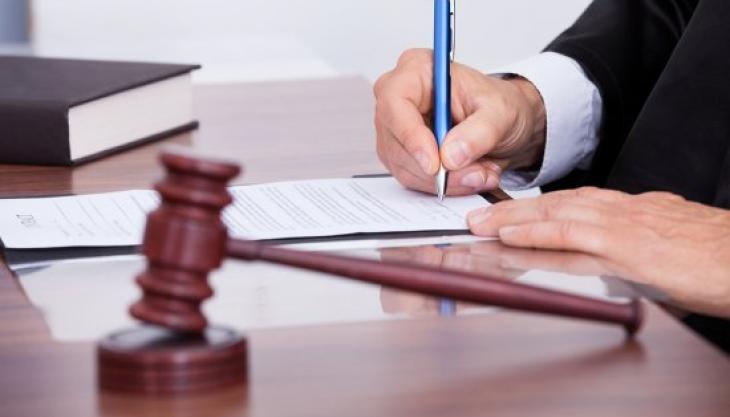How to Get Rid of a Judgment Lien with Chapter 7 or 13 Bankruptcy
Submitted by Rachel R on Thu, 12/18/2014 - 11:19am

A judgment by the courts can lead to a lien
When you are sued over an unpaid debt – typically for credit card debts, medical bills or the remaining balance after a car was repossessed – if you lose the lawsuit, the court can issue the creditor a judgment against you. With this judgment in hand, the creditor can pursue you more aggressively. In many states, judgments can be used to obtain wage garnishments. In North Carolina, creditors generally aren't allowed to garnish wages except for support payments, incomes taxes or student loans. But that doesn't mean they can't go after other assets and that's where the judgment lien comes into play.
How a judgment lien affects you
Once a creditor obtains a judgment they can get a lien against any real property you own. This means they can apply the lien towards your home and try to force it into foreclosure in order to recover the amount you owe them. Judgments are particularly devastating because they are good for a period of 10 years with a 10 year extension available. This means that while there may be no equity in your home now, the creditor can wait you out and hope your circumstances turn around and then come after you.
How bankruptcy can help with judgments
If you have been hit with a judgment but it hasn't yet gone to the lien phase, bankruptcy can typically void the judgment out and stop the process from getting more serious. But if there has already been a lien attached to your property, the bankruptcy can void the judgment but the lien can linger on and complicate your bankruptcy. If the lien is on your home and you surrender the property as part of your bankruptcy because you have no equity in the home and can't afford to keep it, the lien will follow the property. But if you keep your home after bankruptcy, that lien can survive and the creditor can later push for foreclosure to satisfy the debt owed to them.
When a lien can be avoided in bankruptcy
If you have a lien on your home or other real property such as land, a lien may be able to be avoided in bankruptcy depending on your circumstances and so long as your attorney files a Motion to Avoid the Judicial Lien. Your bankruptcy attorney will evaluate your situation to see if you're eligible to have the lien avoided. This is done by looking at the available bankruptcy exemption on your property, any creditor liens and other liens. This is then compared to the value of your real property. If the total exceeds the property value, you may be eligible to have your lien avoided (i.e. gotten rid of).
Find out more about judgments and liens in bankruptcy
If your debt situation is so dire that you are getting letters from creditors threatening a lawsuit, have received notice that a lawsuit has been filed against you by a creditor or have been slapped with a judgment from one of these lawsuits, you should get professional advice now. Contact the law offices of John T Orcutt to find out more about how bankruptcy can help you stop these last-ditch collection efforts and preserve your rights to your property. Call +1-833-627-0115 for a free consultation at one of our convenient North Carolina locations.
Debts Hurt! Got debt? Need help? Get started below!
Serving All of North Carolina
- Bankruptcy Attorneys Raleigh NC (North)
- Bankruptcy Attorney Fayetteville NC
- Bankruptcy Attorney Durham NC
- Bankruptcy Attorneys Wilson NC
- Bankruptcy Attorneys Greensboro NC
- Bankruptcy Attorneys Southport NC
- Bankruptcy Attorneys Wilmington NC
Bankruptcy Attorneys Raleigh NC (North)
6616 Six Forks Rd #203 Raleigh, NC 27615 North Carolina
Tel: (919) 847-9750

Bankruptcy Attorney Fayetteville NC
2711 Breezewood Ave Fayetteville, NC 28303 North Carolina
Tel: (910) 323-2972

Bankruptcy Attorney Durham NC
1738 Hillandale Rd Suite D Durham, NC 27705 North Carolina
Tel: (919) 286-1695


Bankruptcy Attorneys Greensboro NC
2100 W Cornwallis Dr. STE O Greensboro, NC 27408 North Carolina
Tel: (336) 542-5993

Bankruptcy Attorneys Southport NC
116 N Howe St. Suite A Southport, NC 28461 North Carolina
Tel: (910) 218-8682

Bankruptcy Attorneys Wilmington NC
116 N. Howe Street, Suite A Southport, NC 28461 North Carolina
Tel: (910) 447-2987
